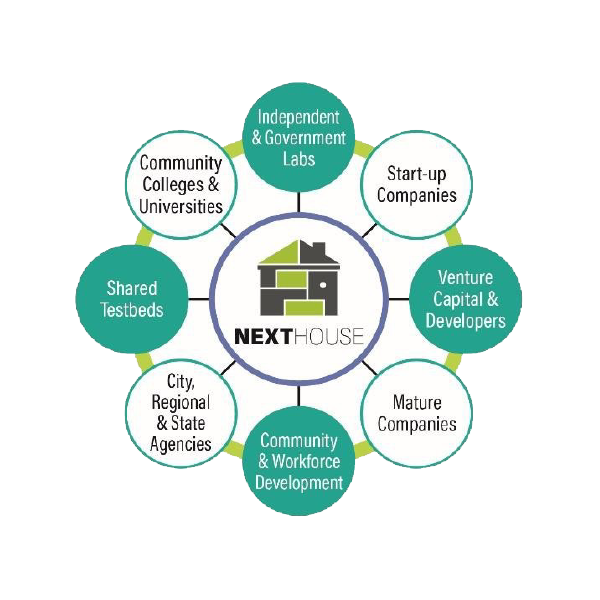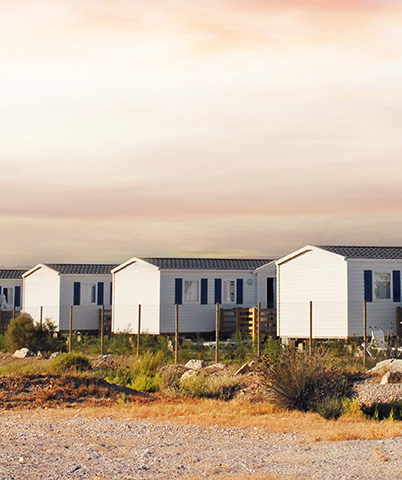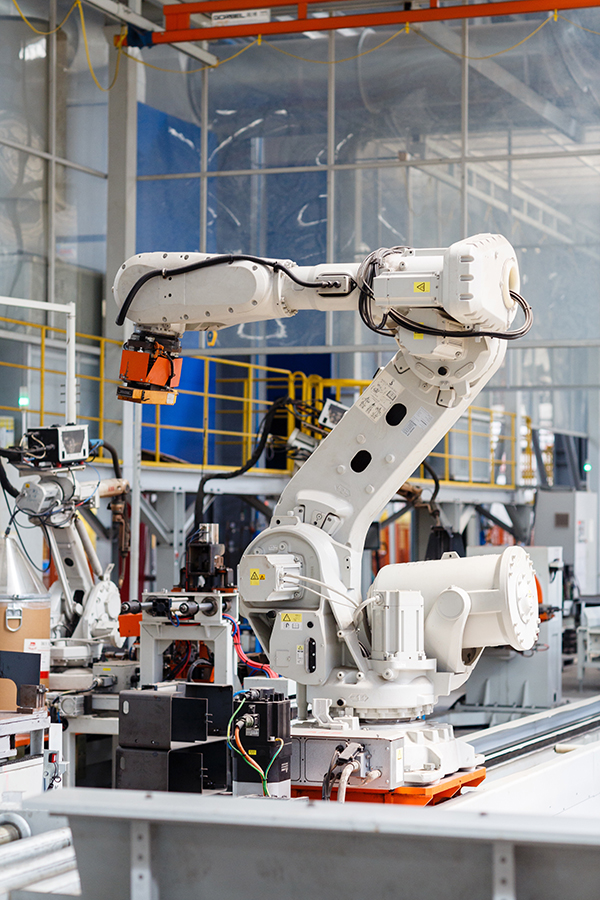
NextHouse Overview
NextHouse will enable next generation high-performance modular housing through innovative design, manufacturing, equipment, laboratory testing, workforce training and field deployment. The Engine will leverage a combination of state-of-the-art research facilities at the partnering institutions and planned resources that will support the NextHouse approach and activities.
NextHouse will conduct research and development activities on 1) novel integrated design, manufacturing, and assembly processes for modular housing, 2) new technologies to maximize economic, environmental, and health benefits, and 3) new policies to accelerate the adoption of modular and off-site housing to assess socioeconomic impacts. To this end, the Engine will leverage a wide array of research facilities and experimental setups to conduct use-inspired research that will translate to practice.
The Problem
The current US housing sector is in crisis, plagued by a chronic scarcity of affordable and available homes, rapidly rising financing and material supply costs, and the largest construction labor shortage in over twenty years. Current methods cannot meet the 5.5 million housing unit gap or address disparities in homeownership and affordability. Today’s approach for meeting new housing demands across the US almost exclusively revolves around site-built construction, where homes are built using antiquated production processes by isolated trades characterized by inefficiency, waste, and excess cost and schedule overruns, a lack of innovation and access to a broader workforce.
The Vision
Our long-term vision is a future that addresses these current ecosystem gaps and deploys a state-of-the-art factory-built innovation model that facilitates new design, mass customization, and assembly by highly skilled workers using advanced industrialized and automation processes. NextHouse will catalyze the delivery of fully integrated and engineered components that far surpass current customization capabilities to ensure greater access, affordability, sustainability, and equity across the housing sector for a unique Midwest region in critical need of better job opportunities and affordable housing.


The Barriers
Improving manufacturing methods and developing advanced technologies for factory-built housing has clear, positive impacts for industry. However, achieving significant progress towards sustainability and housing equity requires these technologies to be widely adopted. New technologies must appeal to consumers and must address the principal-agent conflicts that arise between the many stakeholders involved in developing, constructing, and living in homes and neighborhoods.
The Enablers
- Cutting-edge techniques like AI, robotics, and sustainable materials
- Established industry partnerships and supportive state policies
- A collaborative Midwest ecosystem rich in resources
